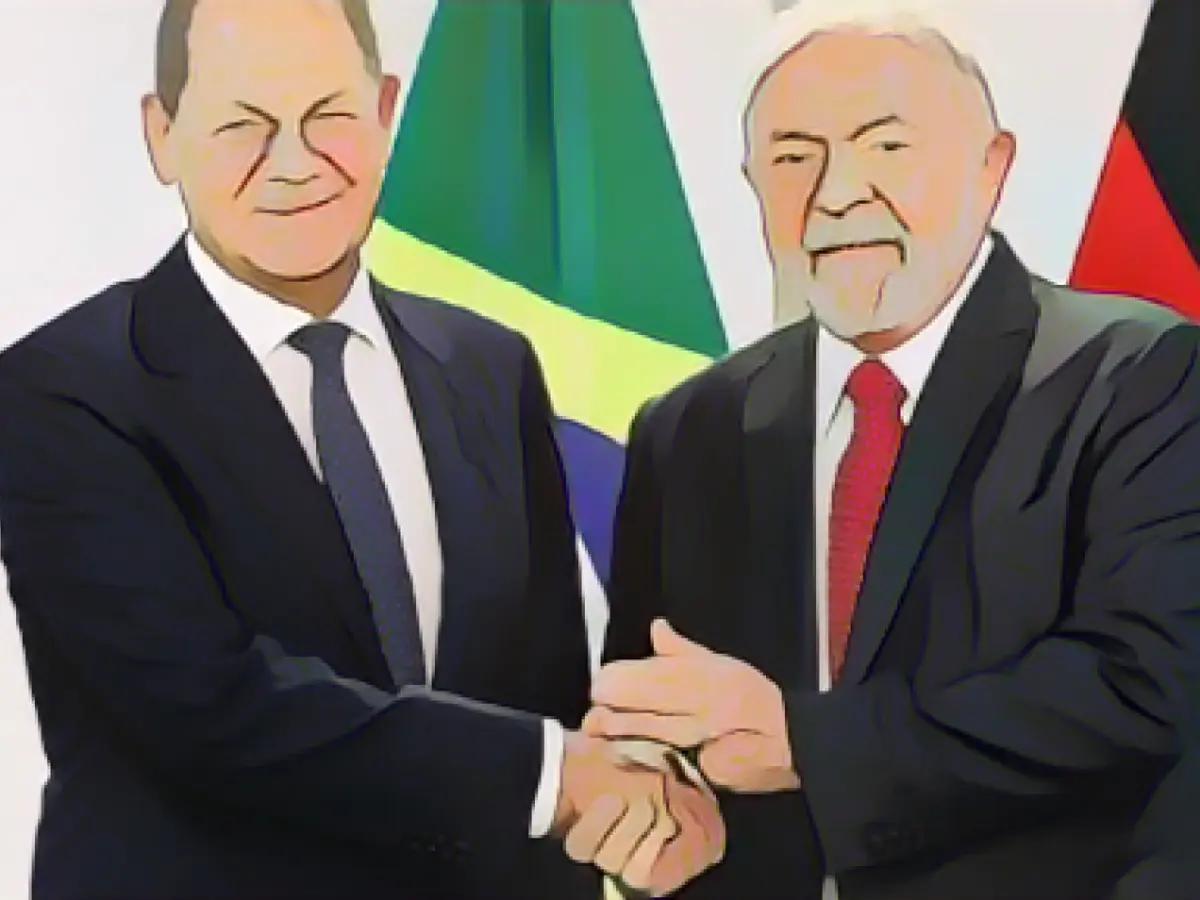Chancellor Scholz Welcomes President Lula for Consultations in Berlin
President Lula's stance on Russia's invasion of Ukraine has sparked controversy with Kiev's Western backers. The left-wing leader blames Ukraine for the war and accuses its allies of prolonging the conflict by supplying weapons. Lula also disagrees with sanctions against Russia, advocating for dialogue as a solution at the UN General Debate in September.
Scholz, however, is a staunch advocate for Ukraine's right to self-defense and vehemently opposes a "dictated peace." Germany and Brazil also have opposing views on the Israel-Hamas conflict, with Lula equating Israel's military response to Hamas's actions with terrorism while Germany supports Israel's right to self-defense.
The Mercosur free trade agreement is likely to be discussed during the meet-up in Berlin. While the EU's deal with the Mercosur countries has been finalized since 2019, it has yet to be ratified due to environmental concerns from countries like France and Austria. However, Germany is pushing for quick ratification, with Scholz expressing his desire to finalize such agreements during his dinner with Lula the previous day.
After the government consultations, Scholz and Lula will hold a press conference and later meet with business representatives in Berlin. Topics for discussion between Scholz and Lula may include the ongoing confrontation between Ukraine and Russia and the Middle East conflict.
Germany's Chancellor Olaf Scholz and Brazil's President Luiz Inácio Lula da Silva held consultations in the Chancellery, with their stances on global conflicts anticipated to shape their discussions. Lula's left-wing perspective on Russia's war in Ukraine, Israel-Hamas conflict, and broader geopolitical issues differ from Scholz's more Europe-centric stance. Their positions have varying implications for their countries' relationships and potential Mercosur free trade agreement.
Lula's presidency of the BRICS summit emphasizes strengthening cooperation in the Global South, while Scholz's stance on involvement and security in Ukraine negotiations highlights the EU's significant role in global affairs. The dynamics in Ukraine and the Israeli-Palestinian conflict could potentially impact European trade agreements, as any agreements should align with European security and economic interests.
Inclusive and sustainable governance through initiatives like the BRICS summit could create a favorable environment for global economic cooperation, including the Mercosur-EU free trade agreement. While the positions of both leaders differ, they both emphasize global cooperation and integration, providing a common ground for dialogue and potential collaboration.
[1] "Olaf Scholz on Ukraine: Germany Opposes Demilitarization, Wants European Involvement in Peace Talks.", Deutsche Welle, 14 Feb. 2023, . [2] "Brazil's Lula da Silva as BRICS President: An Opportunity to Strengthen Global South Cooperation?", The Diplomat, 10 March 2023, . [3] "Brazil's Lula da Silva Calls for Dialogue to End Ukraine Conflict", Reuters, 23 Sept. 2022, . [4] "Scholz Calls for Rapid and Decisive Position from Europe on Ukraine"," Deutsche Welle, 17 Feb. 2023, . [5] "Lula da Silva's Presidency Dilemma: Embrace Multipolarization or Cope with Polarization?", The Diplomat, 16 March 2023, .








